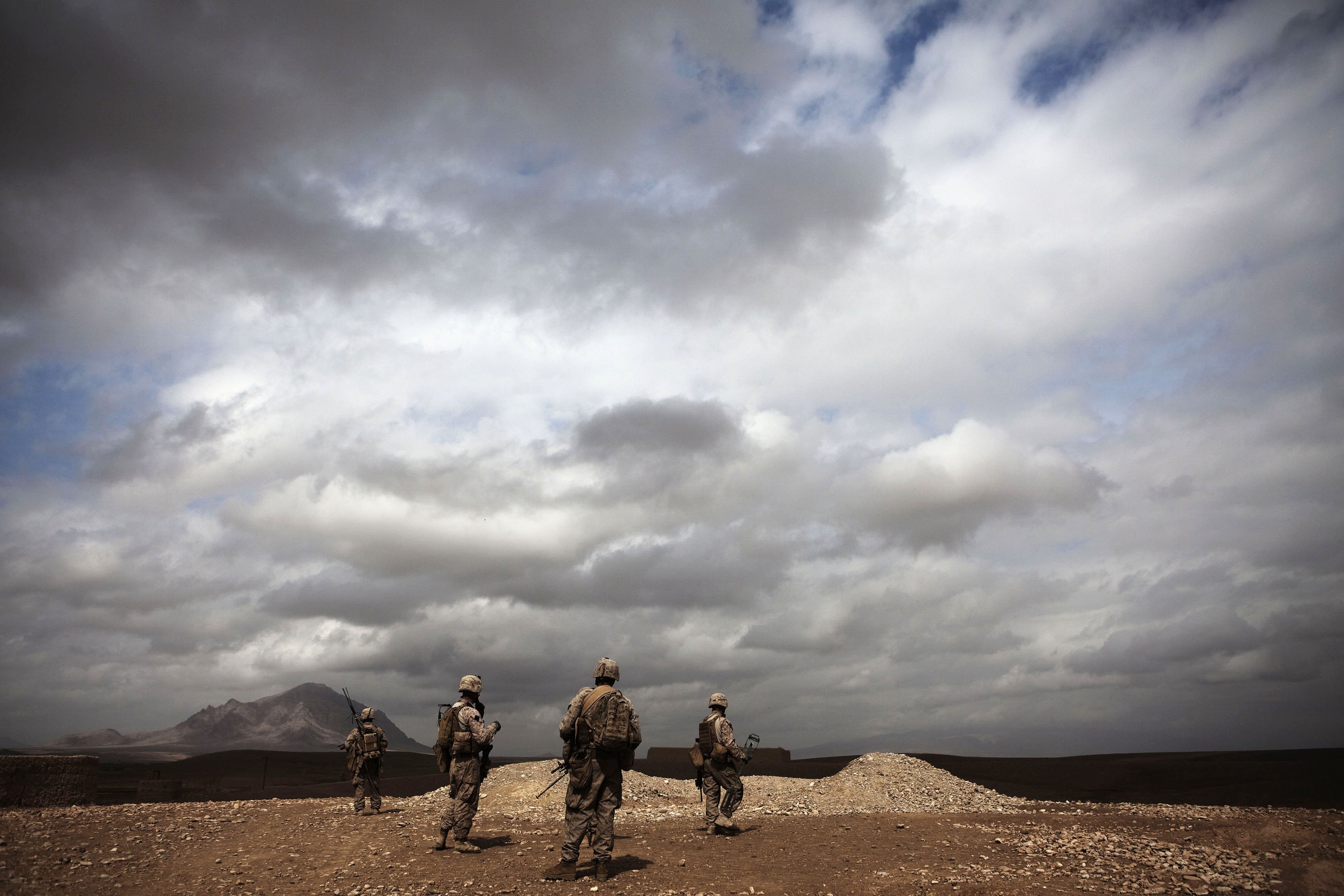Time to cut and run in Afghanistan
Trump's Afghanistan strategy is only going to make the inevitable worse


A free daily email with the biggest news stories of the day – and the best features from TheWeek.com
You are now subscribed
Your newsletter sign-up was successful
What happened to Trump the dove? With his troop surge in Afghanistan, the president is once again giving us everything bad about himself and the Republican Party and none of the better stuff he promised during the campaign, like his anti-war policy. President Trump is just a much more stupid, erratic, corrupt, and incompetent Mike Pence.
Many anti-war Americans have been sunk in despair over Afghanistan since Barack Obama announced his own troop surge back in 2009, which failed spectacularly just as Trump's is 100 percent guaranteed to do. American soldiers have been there for 16 years, and it seems there is every chance they'll be there for 16 more.
But for that reason it is worth stating the obvious: American troops are doing far more harm than good in Afghanistan. They should be immediately withdrawn.
The Week
Escape your echo chamber. Get the facts behind the news, plus analysis from multiple perspectives.

Sign up for The Week's Free Newsletters
From our morning news briefing to a weekly Good News Newsletter, get the best of The Week delivered directly to your inbox.
From our morning news briefing to a weekly Good News Newsletter, get the best of The Week delivered directly to your inbox.
Two years ago I checked in on Afghanistan, and found it was an awesomely corrupt basketcase. It had a fraud-ridden electoral system and ranked 172nd out of 176 countries on Transparency International's corruption measure. It supplied most of the world's raw opium, and the Taliban in effect controlled huge swathes of the country.
Today, Afghanistan is up to a whopping ... 169th place in the corruption rankings. In other areas, it's doing even worse than before. Its democratic system struggles to even hold an election, a U.N. survey found that opium cultivation was up 10 percent in 2016, and ISIS now has a small foothold in addition to the Taliban, which has taken even more territory. The Special Inspector General for Afghanistan Reconstruction (SIGAR) continues to churn out reports nobody reads finding one disastrous failure after another. They recently discovered, for example, that $28 million was wasted on forest camouflage patterns for Afghan army uniforms that were totally unsuitable for the local desert environment (desert camo was, naturally, available for free).
George W. Bush's entire presidency saw no significant progress on Afghan stability for the same reason Obama's surge failed, and for the same reason that Trump's surge will fail: because the American war and occupation caused more fighting and instability than it ever solved. For one thing, the hundreds of billions of dollars spent on reconstruction massively distorted the Afghan economy, not only fueling an orgy of corruption (among both Afghans and Americans), but also causing a large recession when most troops and contracts were withdrawn over the last couple years, as was always going to happen at some point.
For another, the still-ongoing presence of American forces — especially the atrocities that are inevitably committed by mistake, or by soldiers infected by the typical imperialist hatred — inflames nationalist resentment. Trump's announcement that he will "lift restrictions and expand authorities" — meaning he'll allow for dramatically more civilian casualties — will make this much worse.
A free daily email with the biggest news stories of the day – and the best features from TheWeek.com
Today, the worsening economy and security situation is to some degree the result of the partial U.S. withdrawal — down from 100,000 troops to only 8,400 today, now mostly in an advisory, training, and air support roles. But Afghanistan is simply starting the same process that Iraq went through after 2011, when American troops were forced out. In that unlucky country, American invasion and occupation forces barely managed to prop up a wobbly little pseudo-state that was so corrupt that it lost whole cities and regions the first time its authority was challenged by handfuls of ISIS fighters with light weapons and pickup trucks.
Contrary to Trump's assertion that leaving Iraq was a mistake, there was simply no avoiding this process. Iraq managed to sort of come through the other side, with an army now that is managed to finally drive ISIS forces out of its last strongholds in Mosul after months of brutal fighting. That took no small amount of Iranian and American help, but it was the genuine threat of state disintegration which forced the Iraqi leadership to construct an army that would actually fight, instead of deserting en masse at the first sign of danger.
At some point the Afghan government will have to face the Taliban mostly on its own. More American troops can only delay the day of reckoning, while fueling the corruption and resentment that undermines the Afghan state — and getting lots of people killed in the process.
Ryan Cooper is a national correspondent at TheWeek.com. His work has appeared in the Washington Monthly, The New Republic, and the Washington Post.
